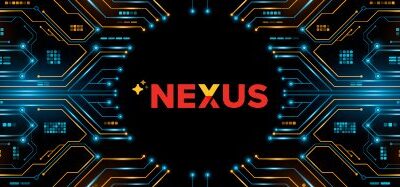Education
AI Threatens Integrity of Asynchronous Online Courses

The rise of artificial intelligence (AI) is significantly challenging the credibility of asynchronous online courses. As education increasingly shifts to digital formats, concerns are surfacing regarding the quality of learning and the integrity of assessments. Researchers are now scrutinizing how generative AI (GenAI) technologies impact student engagement and the authenticity of submitted work.
Distance learning has a long history, predating the digital age. Initially, learners relied on printed materials and later, technologies like radio to supplement their education remotely. Today, students can access asynchronous online courses, enabling them to learn at their own pace without real-time interaction with instructors. While this format offers flexibility, it raises pressing questions about academic integrity.
The lack of direct interaction in asynchronous courses makes it easier for students to misuse AI tools undetected. Instructors often rely on traditional assessment methods such as discussion board posts and written reflections. Yet, these methods are now under scrutiny as distinguishing between human-generated content and that produced by AI has become increasingly complex. GenAI can craft responses with a polished academic tone, making it difficult for educators to gauge actual student understanding.
AI tools, like ChatGPT, can navigate course materials and complete assignments with minimal input from students. Although there are strategies to mitigate cheating, such as requiring time-stamped drafts and version histories, these can be easily manipulated. As a result, instructors find themselves bogged down by the need to monitor and investigate potential misconduct, diverting their focus from student learning.
Moreover, the challenge extends to visual content. AI-generated infographics and videos are becoming indistinguishable from those created by human students. Attempts to implement AI detection software have proven largely ineffective, often leading to false positives that disproportionately affect neurodivergent and second-language learners. Some universities are now advising against using these tools as evidence of academic misconduct.
Remote proctoring solutions present their own set of challenges. Ethical considerations regarding privacy, equity, and accessibility arise, especially for students who may not have the necessary technology or private space to participate in monitored assessments. These issues further complicate the landscape of online learning.
Without effective intervention, educational institutions risk awarding credentials to students who may not have genuinely engaged with course content. This situation threatens the overall integrity of academic programs.
To address these challenges, two potential strategies have emerged. First, implementing short oral examinations for major assignments can help verify authorship and assess students’ understanding. Second, experiential learning components with external verification—such as endorsements from workplace supervisors—can enhance the learning experience. These strategies could deter reliance on AI while enriching the educational process.
Nevertheless, assessment modifications alone are insufficient to resolve the authenticity crisis. The Community of Inquiry framework, which emphasizes social presence, cognitive presence, and teaching presence, is at risk due to the capabilities of GenAI. Institutions must critically evaluate whether their asynchronous programs can uphold these essential elements in light of AI’s pervasive influence.
Educators and institutions must confront the uncomfortable reality that few strategies effectively protect against AI substitution. Many solutions merely create obstacles that determined students can bypass. Implementing the suggested approaches requires a commitment to providing resources and policy support to enhance assessment authenticity.
The choice now lies with educational institutions: invest in the necessary measures to restore integrity in online assessments or acknowledge that current asynchronous programs may no longer guarantee valid learning outcomes. As the situation stands, without robust institutional efforts, these programs risk devolving into mere credential mills. The pressing question is whether institutions can afford to neglect these pressing challenges.
-

 World4 months ago
World4 months agoScientists Unearth Ancient Antarctic Ice to Unlock Climate Secrets
-

 Entertainment4 months ago
Entertainment4 months agoTrump and McCormick to Announce $70 Billion Energy Investments
-

 Lifestyle4 months ago
Lifestyle4 months agoTransLink Launches Food Truck Program to Boost Revenue in Vancouver
-

 Science4 months ago
Science4 months agoFour Astronauts Return to Earth After International Space Station Mission
-

 Technology2 months ago
Technology2 months agoApple Notes Enhances Functionality with Markdown Support in macOS 26
-

 Top Stories3 weeks ago
Top Stories3 weeks agoUrgent Update: Fatal Crash on Highway 99 Claims Life of Pitt Meadows Man
-

 Sports4 months ago
Sports4 months agoSearch Underway for Missing Hunter Amid Hokkaido Bear Emergency
-

 Politics3 months ago
Politics3 months agoUkrainian Tennis Star Elina Svitolina Faces Death Threats Online
-

 Politics4 months ago
Politics4 months agoCarney Engages First Nations Leaders at Development Law Summit
-

 Technology4 months ago
Technology4 months agoFrosthaven Launches Early Access on July 31, 2025
-

 Top Stories2 weeks ago
Top Stories2 weeks agoFamily Remembers Beverley Rowbotham 25 Years After Murder
-

 Top Stories5 days ago
Top Stories5 days agoBlake Snell’s Frustration Ignites Toronto Blue Jays Fan Fury





















